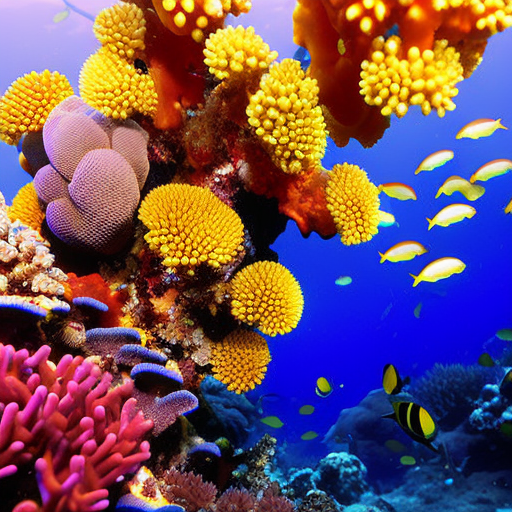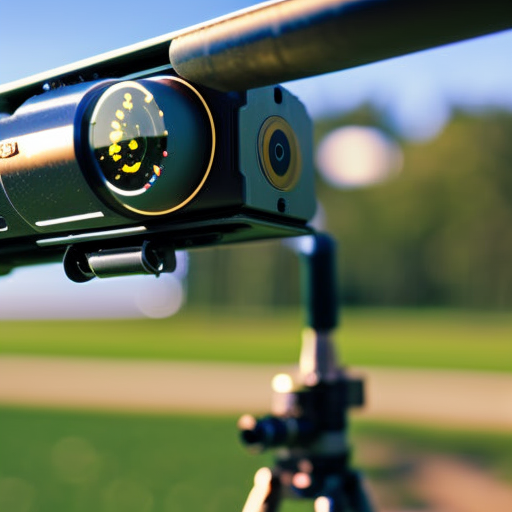Summary: Marine biotechnology is a field that explores the use of marine organisms and their derivatives for various applications, including medicine, food production, and environmental conservation. It involves the study of marine organisms, their genetic makeup, and the development of technologies to harness their potential. Marine biotechnology has the potential to revolutionize various industries and contribute to sustainable development.
Introduction to Marine Biotechnology
Marine biotechnology is a multidisciplinary field that combines biology, chemistry, genetics, and engineering to study and utilize marine organisms for various purposes. The oceans are home to a vast array of organisms, many of which have unique properties and adaptations that make them valuable resources for human use. By studying these organisms and their genetic makeup, scientists can develop new technologies and products that have applications in medicine, agriculture, aquaculture, and environmental conservation.
Applications of Marine Biotechnology
1. Medicine: Marine organisms have been a rich source of bioactive compounds with potential therapeutic properties. For example, marine sponges have yielded compounds that have anti-cancer, anti-inflammatory, and antibiotic properties. These compounds can be used as leads for drug development or as therapeutic agents themselves.
2. Food production: Marine biotechnology has the potential to contribute to sustainable food production. Marine algae, for instance, can be cultivated for their high nutritional content and used as a source of protein, omega-3 fatty acids, and antioxidants. Additionally, marine bacteria can be used to develop probiotics for aquaculture, improving the health and growth of farmed fish and shellfish.
3. Environmental conservation: Marine biotechnology can aid in the conservation and restoration of marine ecosystems. For example, bioremediation techniques can use marine microorganisms to degrade pollutants and clean up contaminated areas. Additionally, the study of marine biodiversity can help identify vulnerable species and develop strategies for their protection.
Technologies in Marine Biotechnology
1. Genomics and metagenomics: Genomic studies of marine organisms have provided valuable insights into their genetic makeup and potential applications. Metagenomics, which involves the study of genetic material directly obtained from environmental samples, allows researchers to explore the genetic diversity of entire marine ecosystems.
2. Bioprospecting: Bioprospecting involves the search for new bioactive compounds and enzymes from marine organisms. This process often involves screening large collections of marine samples for potential applications. Advanced screening techniques, such as high-throughput screening and robotic automation, have accelerated the discovery process.
3. Aquaculture: Marine biotechnology plays a crucial role in the development of sustainable aquaculture practices. Techniques such as selective breeding, genetic engineering, and disease management help improve the productivity and sustainability of aquaculture operations. Marine biotechnology also contributes to the development of new species for aquaculture and the conservation of wild populations.
Challenges and Future Directions
Despite its potential, marine biotechnology faces several challenges. Access to marine organisms and resources, ethical considerations, and regulatory frameworks are some of the hurdles that need to be addressed. Additionally, the sustainable use of marine resources and the conservation of marine ecosystems must be prioritized to ensure long-term benefits.
In the future, advancements in technologies such as genetic engineering, synthetic biology, and bioinformatics will further enhance the capabilities of marine biotechnology. The exploration of unexplored marine environments, such as deep-sea habitats, will uncover new organisms and compounds with unique properties. Collaboration between scientists, industry, and policymakers will be crucial to harness the full potential of marine biotechnology and ensure its responsible and sustainable development.
In conclusion, marine biotechnology offers immense potential for various applications, including medicine, food production, and environmental conservation. By studying marine organisms and their genetic makeup, scientists can develop new technologies and products that have wide-ranging benefits. However, addressing challenges related to access, ethics, and sustainability is essential for the responsible and sustainable development of marine biotechnology.












